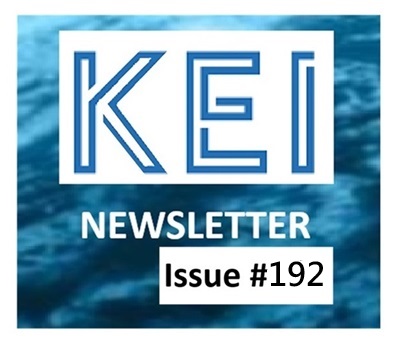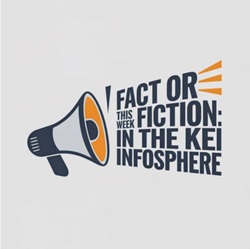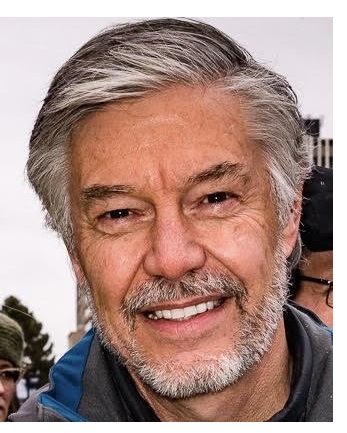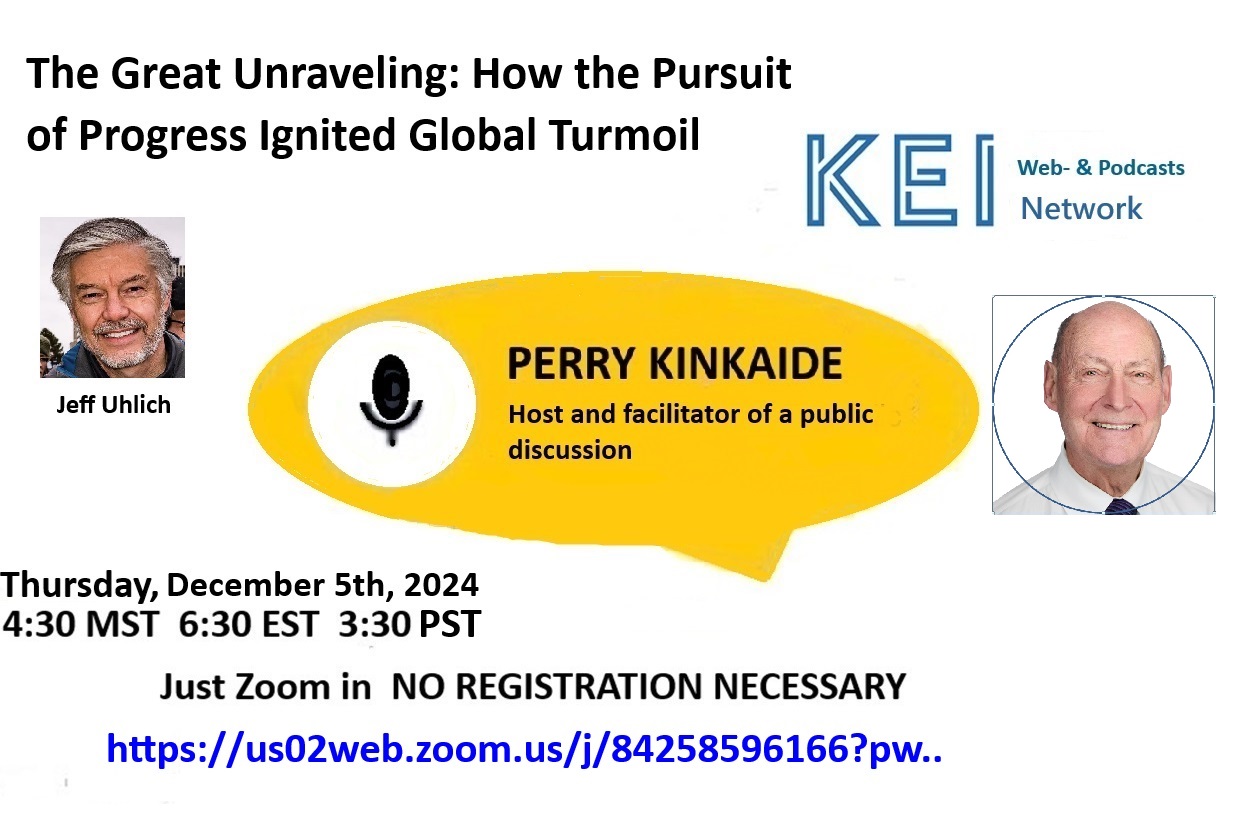Jeff Uhlich in the featured article below summarizes the forces and sources of global chaos as discussed by the KEI Network throughout November. A glaring Network oversight is the threat to global stablity posed by the aggressive posturing of Russia and Iran, North Korea and China, nations of the Near-, Middle-, and Far-East. The threat and role of Trump as a Peacenik are addressed HERE - Editor The Elephant in the Room: Confronting the Intractable Challenges of the 21st Century One summer morning at Moose Lake, Alberta, I found myself in a precarious position - one foot on a floating dock, the other on an unmoored rowboat where my siblings waited. The dock, though anchored to the lakebed with deep pilings, rose and fell with the waves, while the boat drifted freely, braced only by my brother's paddle. That moment of decision - straddling stability and uncertainty - mirrors our current situation. Like that floating dock, our present has its anchors, and they are holding (for now), but the future, like that drifting boat, offers both opportunity and great risk. We stand at a crossroads, weighing whether to hold fast onto familiar ground or take the leap into uncharted waters.
Perry Kinkaide set the table for this series. He highlighted the paradox of progress and discontent, but he went on to emphasize the need for a more comprehensive understanding of wealth. Perry criticized the overemphasis on purely economic indicators, highlighted our society's lack of preparation in addressing social challenges like immigration and homelessness, and our tendency to prioritize short-term political gains over short-term solutions. Perry advocated for a fundamental shift in societal values and governance. Robert McGarvey provided KEI Network members with an historical perspective. He argued that 'woke' ideology undermines the very principles of individual initiative and responsibility that have driven progress throughout Western history. Robert extended Perry's identification of paradox and challenged a specific ideology having a direct impact on governance and social cohesion. America's Pivotal Role. At this juncture, I must interject to remind you that Perry's and Robert's presentations took place just before and just after the US elections. We have to acknowledge the outsize influence that the United States has on the fate of the World and understand that its simply impossible to have a conversation about global challenges without factoring America's role into the mix. America's economy is a $29 trillion dollar behemoth. Its largest export is its culture and its military capacity for force projection is unparalleled. When America gets the sniffles, the saying goes, Canada catches a cold. And that largely applies to the rest of the World as well. Mel Head focused our attention on the unintended consequences of technology and acknowledged the paradoxical nature of innovation. Going beyond highlighting the paradox, Mel advocated for greater public understanding of technological risks and argued for more effective communication and risk mitigation. He suggested a more responsible and ethical approach to technological development is required. In the final breathtaking presentation of the series, Peter McKinnon introduced the concept of 'polycrises' which took us beyond the idea of a binary paradox. Peter argued that we are facing a complex web of overlapping and interconnected crises demanding unprecedented levels of international cooperation and innovative thinking. What stayed with me from Peter's presentation is that we are in trouble. At a planetary level. Ecosystem measures key to sustaining life have been breached. And our mechanisms of governance are not equipped to manage the problems. Peter argued that these issues call for new models of governance and problem-solving. The Blind Man and the Elephant: Understanding Our Challenges. Each of these presenters explored a different aspect of our current unsteady times and in this I was reminded of the parable of The Six Blind Men and the Elephant. Each of these presenters, through their articles and webinars, shared a perspective. Like the six blind men, each had a different understanding of the elephant they encountered. Was it like a snake, a rope, a fan, a tree trunk? Yes. Individually and collectively, the six blind men could not comprehend the elephant. None of us, let alone, Donald Trump, understands what we are suffering. And our diagnoses are likely premature or inadequate. - Continued below Discontent, Wealth Inequality, Neo-Liberalism and Wokeism, the Unintended Consequences of Technology, and the Polycrises of governance and environmental damage are all aspects of the factors influencing our times. They are all correct. And they are all incomplete. I too am a blind man. And now it is my task to step back and tell you about the elephant as I perceive it. And yes, I have the advantage of hearing four brilliant perspectives first. But I will present just one additional perspective, and it too will be incomplete. Interconnected Crises and Proposed Solutions. The narrative arc of the November KEI Network series moved from acknowledging the paradox of progress and discontent to exploring various interconnected crises shaping our world. But we didn't just identify problems. Each session advanced potential solutions. Each session emphasized the need for greater balance, an ethical approach to innovation, and a reevaluation of societal values. Ultimately, the series called for a more proactive and collaborative response to the global challenges we face. For each solution offered by the presenters, there is a countervailing force. I've highlighted these in a table at the end of this article. Suffice to say, every solution suggested faces big challenges. Two Critical Factors: The US Election and AI. Throughout the November series, there were two undercurrents – the US elections and the potential use of Artificial Intelligence (AI) as a tool for understanding and mitigating risk. The results of the recent Presidential election in the US put a sharp focus on the issues we discussed. Kamala Harris's campaign had a consistent refrain 'We're not going back'. Well folks, they are going back. America has decided to stay on the pier. The Devil you know, and all that. The American electorate has granted Donald Trump leadership of the Free World. Is that an enlightened, informed, and forward-looking decision or the last gasp of the old-World Order? The jury of history is out. Regardless, it's quite clear that the incoming President was recognized throughout our sessions as a wild-card and as a potential force of further disruption. AI too, is a double-edged sword. Across our sessions, we recognized AI's ability to be harnessed as a tool to help us grow our knowledge, accelerate the creation of solutions, navigate the polycrises, and mitigate risk. But we were also mindful that potential comes with danger. Job displacement and erosion of skills could worsen discontent. Bias and misinformation could be amplified. And our regulation of AI has been outstripped by the need for companies and countries to compete. Winning the AI 'arms race' has overtaken our ability to govern. But the AI 'solutions race' may be more pressing – can AI contribute solutions in time, to problems we don't even fully understand? My Elephant and the Challenge of Implementation. All the writers and presenters for this series emphasized the need for coordinated and collaborative action. Better risk assessment, education, informed decision making, critical thinking, progressive taxation, reevaluation of 'movements' like ESG and DEI, stronger social cohesion, and a shift away from consumerism and new economic metrics were all suggested. These are all important ideas I think are worthy of serious consideration. But I struggle with the big, sweeping, long term effort, these all require. The elephant I perceive exists within a four-year election cycle and faces five big challenges:
Sadly, I am not optimistic about our ability to affect meaningful, lasting change in an environment buffeted by these realities. In my view, they serve as structural and systemic barriers to making lasting change. But that is the elephant I encounter. A giant intractable elephant. A wicked elephant of a problem. Finding Hope: The Power of Individual Action. But the KEI Network series does offer a glimmer of hope to those of us on the heaving pier. The series emphasizes that we, as individuals, are not powerless. We possess a wealth of experience, skills, and wisdom that can help bridge the divides tearing at the fabric of our societies. We can engage in civil discourse, challenge simplistic narratives and foster respectful dialogue (just as we do every week in the KEI Webinars). We can support organizations and initiatives that promote critical thinking, ethical leadership, and common-sense solutions. We can insist of our leaders that they collaborate and act in the best interests of all citizens - even when it hurts. And this, it must be emphasized, is another overarching theme of the November series – leadership matters. Leadership and Mentorship: Building Building Bridges to the Future. As importantly, we can mentor younger generations, sharing the hard-won lessons of our careers to help them navigate the complexities of an ever-changing world. We can encourage them to embrace a balanced perspective, to be wary of ideological extremes, and to ground their convictions in a deeper understanding of history and human nature. Conclusion: Navigating Uncertain Waters. The world may feel like it's spinning under our feet, but the values that guided us in our careers – common sense, integrity, and a commitment to finding evidence-based and practical solutions – remain timeless. Now is the time to put those values to work, to shore up the pilings, strengthen the moorings, and to help restore a sense of balance and hope to our increasingly fractured world. We are straddling the present and the future and our one step forward, two steps back, trajectory will likely continue. We will zig and zag our way into a better tomorrow or into oblivion. I hope we choose wisely. - Jeff Uhlich Summarizing the Countervailing Forces to Proposed Solutions This table provides an overview of the major obstacles to implementing solutions for the pressing global issues raised. By understanding these countervailing forces, we can better assess the feasibility of proposed solutions and develop strategies for addressing the World's most complex challenges.
|
|||||||||||||||||||||||||||||



